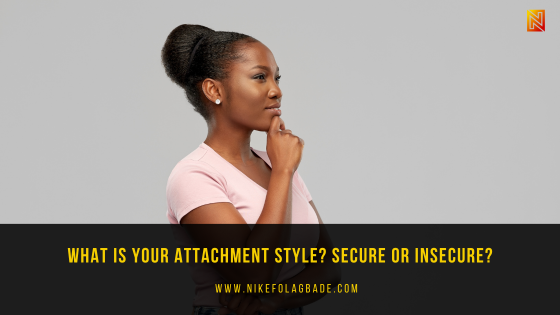I recently spoke at a youth conference where I had the privilege of engaging with a diverse group of young men and ladies who needed counsel in their lives and relationships.
During the conference, I observed a recurring issue among the attendees: a significant number of them complained about the lack of emotional connection with their parents.
They acknowledged their parents\’ best effort in providing for their financial and household needs, but these young individuals felt that their parents were always busy and unwilling to extend understanding and friendship to them.
Due to this, they have grown up with a sense of independence and struggled to form intimate connections with their parents. They longed for that special bond and, in its absence, ended up struggling with addictions and engaging in toxic lifestyles, which they deeply regret daily.
Emotional connections must be established between parents and their children during the formative years. When such a connection is missed, it can ruin the first touch of emotions for a young adult.
Bringing this into relationships, the level of emotional stability you have experienced in your formative years, as well as the experiences you have encountered in your life, have a great influence on the healthiness of your relationships.
There are four kinds of attachment styles in Attachment theory. According to Wikipedia, Attachment theory is a psychological and evolutionary theory concerning relationships between humans.
The most important tenet of this theory is that young children need to develop a relationship with at least one primary caregiver for normal social and emotional development. The theory was formulated by psychiatrist and psychoanalyst, John Bowlby.
Did you experience emotional connection while growing up? If yes, how has it shaped your interactions with people as you navigate through life? On the other hand, If you didn\’t have the opportunity to develop such connections, how has it adversely affected you as you meet new people daily?
To have a healthy relationship, your attachment style would need to be secure because it forms the proper foundation for giving and receiving love with vulnerability, honesty, and empathy. If you do not have a secure attachment, there is hope, as this aspect can be nurtured and developed over time.
Have you experienced these patterns with your partner?
● Constantly feeling afraid of your partner’s actions.
● Desire to be loved and validated more often.
● Consistently struggling with having some form of freedom from your partner and feeling unsafe with their desire to have me-time.
● Interpreting every disagreement as a pathway to separation.
● Dealing with assumptions and suspicions in the relationship.
● Inability to set boundaries without succumbing to people-pleasing tendencies?
● Are you prone to feelings of jealousy and obsession about your partner?
● Do you find yourself sabotaging your relationships through your actions?
● Do you struggle to maintain a sense of connection as you become more intimate?
● Or do you keep repeating toxic patterns in your love life?
If you find yourself experiencing these challenges within your relationship, you or your partner may be struggling with different attachment styles.
As someone with a secure attachment style, you likely prefer to be in relationships that are characterised by emotional stability and a lack of unnecessary drama. A secure attachment style is a desirable goal, as it fosters trust, intimacy, and a sense of security in relationships.
However, individuals who have experienced childhood trauma may face challenges in developing and maintaining a secure attachment style.
If you find yourself desiring a relationship that is free from drama and unrealistic standards or expectations, it can be beneficial to cultivate self-awareness and reflect on the type of connection you truly seek with a partner.
Building self-awareness involves understanding your own needs, values, and boundaries, as well as recognising patterns and behaviours that may hinder the development of a healthy relationship.
If your partner struggles with any of the patterns highlighted above, you should both have a conversation on how improvement can occur.
An insecure attachment style is worrisome and can frustrate a partner, it is important to approach the situation with empathy and understanding. Each individual has a personal responsibility to work on themselves and strive for the fulfilling and harmonious relationship they desire.
What are the signs that you have a secure attachment style?
● You are willing to be dependable in the relationship and you offer such support to your partner as well.
● You are open, vulnerable, and emotional.
● You find it easy to express your love to your partner without holding back or feeling awkward.
● You can navigate the relationship with good self-esteem while allowing your partner to be themselves.
● You are not so clingy; you have healthy friendships and lifestyles outside the relationship.
So, take your time to ask yourself, what kind of attachment style have I exhibited in all the relationships or the current relationship that I have?
Secure or insecure?
You may need to seek therapy to address your upbringing and experiences. By this, you can troubleshoot why you act or feel a certain way in your relationship. Taking this step will help you address the foundational reasons behind your behaviors. Book a session here: www.nikefolagbade.com/coachingpackage and we can talk about this extensively.

